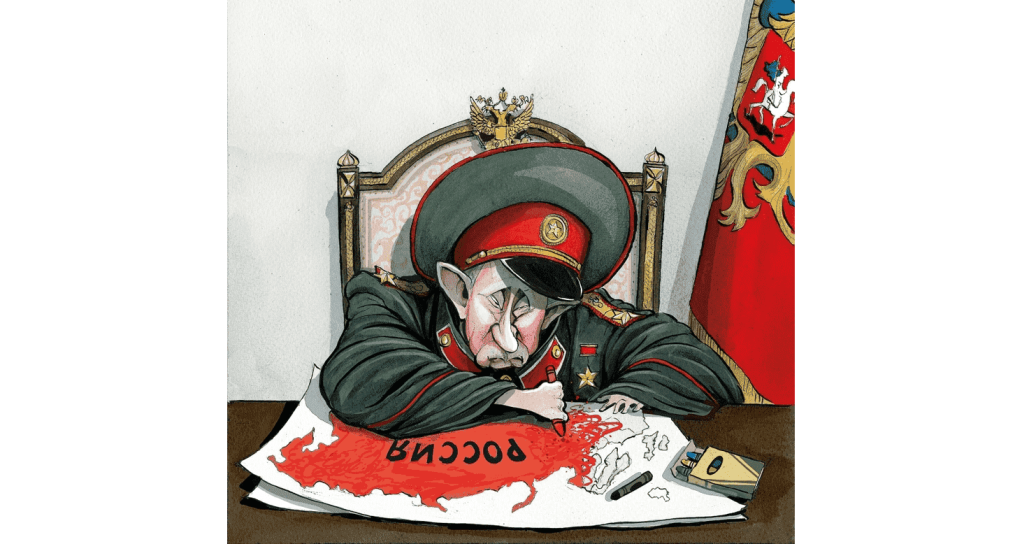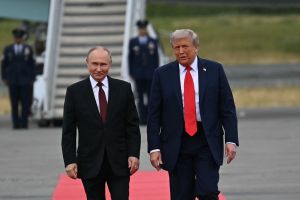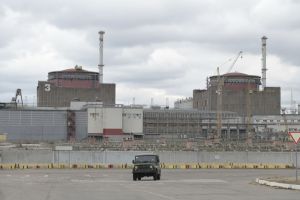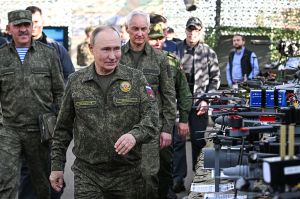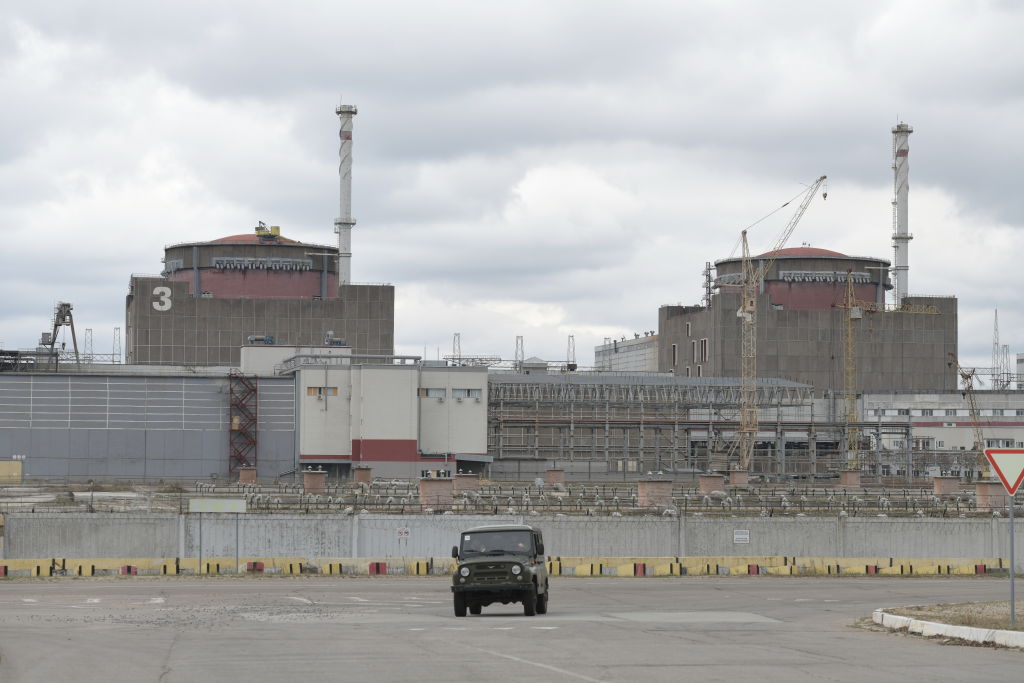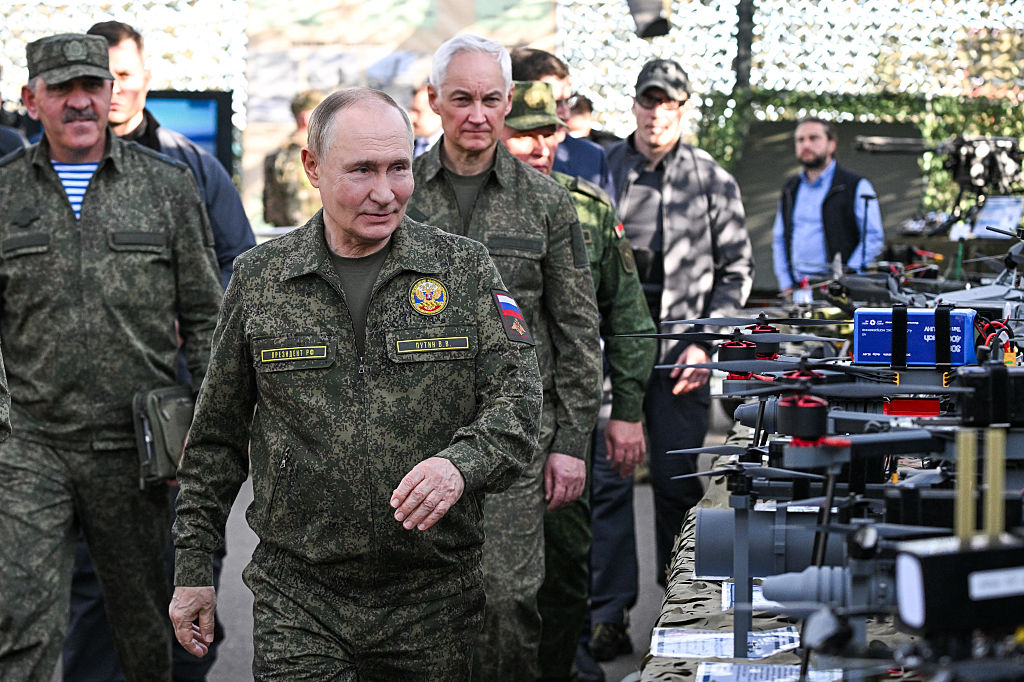The abrupt eruption of the worst military conflict in Europe since World War Two has naturally left the world in a state of shock, perhaps only comparable in living memory to that felt on 9/11. But as responses are considered and argued over, there will be more blows to come — as well as recriminations over how this could have been avoided.
Naturally, much depends on which side emerges victorious, and at the time of writing the end result has yet to be determined. Certainly any assumption that the might of Russia’s military machine would roll into Ukraine and quickly overwhelm the defenders has been categorically proven wrong; Russia’s Blitzkrieg-style offensive failed to achieve its first-day objectives in the face of fierce Ukrainian defense. Indeed, American intelligence agencies report that Moscow has been rocked by the number of the personnel and materiel losses that Russian forces have sustained.
President Zelensky’s press secretary, Sergii Nykyforov, has publicly stated that Ukraine will agree to negotiate with the Kremlin, but so far President Putin’s demands cannot realistically be accepted — Russia’s call for the complete demilitarization of Ukraine would be tantamount to surrender, and Zelensky’s government would clearly not survive the backlash from the Ukrainian people.
After a political crisis, it is common to look back on the events once the storm has safely passed with the benefit of hindsight. But any examination of Ukraine should cause significant pause. A more decisive and forceful display from Washington and Brussels in earlier years may have prevented the current war entirely, or at least limited its scope. There are lessons for the Free World to learn, and rapidly.
It is entirely understandable for the Western world to have gingerly dealt with Putin’s resurgent Russia as it emerged from the wilderness of the 1990s. With the Cold War comfortably over and a number of former Eastern Bloc states integrated into NATO by 2005, there was no appetite from Brussels and Washington for a return to endless worries over conflict with Moscow and the accompanying risk of mutually assured destruction — especially not with a shift in focus to the Middle East.
Yet Putin thrust a new Cold War upon the West over fifteen years ago, and failures from Washington and Brussels to respond in kind are what has led to the current crisis in Ukraine.
Russia’s 2008 war against Georgia is the best indicator of this. After the pro-Western Rose Revolution of 2003, the Georgian government declared its ambitions to follow in the paths of other former Soviet states, resulting in significant American investment and aid, as well as US-led efforts to train and equip Georgia’s armed forces. Naturally this incurred Putin’s ire. In addition to the risk of another country formerly under Moscow’s control going West, Georgia is the partial home of the only Caspian resource pipelines not under either Russian or Iranian control. That’s a major concern for the Kremlin, given that Europe is demonstrably dependent on Russian oil and gas supplies.
Taking advantage of separatist sentiment in the two Georgian regions of South Ossetia and Abkhazia, Moscow abruptly granted Russian citizenship to the people of South Ossetia. After Georgian forces returned the fire of the separatists and moved into Ossetia to suppress the positions, the Kremlin was able to claim that Russian citizens were under attack, and that Georgia’s military had fired first. This may sound familiar in light of more recent events in Ukraine, but as the US Embassy in Kyiv tweeted this week, “It’s all straight from the Georgia playbook.”
Failing at the first test, the international community chose to believe the Kremlin’s line, avoiding the responsibility of having to confront Russia and its allies. Yet after defeating Georgia’s army in the field, Russia stopped short of attempting to take the capital, Tbilisi — a move that now might look uncharacteristically restrained.
It seems that in 2008, Putin was keen to test just how far Washington would go to protect a country that it had invested so much in. America’s response doubtless fulfilled his wildest dreams. Ronald D. Amus — former deputy assistant secretary of state and a key figure in expanding NATO eastwards — recorded in his book on the conflict, A Little War that Shook the World, that President Bush reportedly said, “This is a European problem, let the Europeans deal with it.” Europe, which had long been wary of firebrand Georgian president Mikheil Saakashvili, ultimately negotiated the ceasefire.
The West’s lackluster response in assisting Georgia undoubtedly emboldened Putin to embark on more adventurism in Ukraine and the Middle East starting in 2014. Yet even in these cases, he exercised a degree of caution: the Russian troops in the Crimea and Donbas regions of Ukraine wore uniforms that displayed no insignia, and instead were dismissed by the Kremlin as being separatist militia rather than Russian regulars. Likewise, in Libya and Syria, Russian special forces and hired mercenaries were used for direct action operations, with the Russian Air Force providing a semblance of international legitimacy.
“Putin only respects strength,” former president Saakashvili told me when I met him last year in Mariupol. It is difficult to disagree. Nothing the West has done so far has discouraged the Kremlin; the sanctions imposed in the wake of Russia’s 2014 intervention did not dissuade Putin from his Middle Eastern operations or his renewed assault against Ukraine this week. Europe’s inability to come to a consensus over cutting off Russia from SWIFT could mean that a new package of sanctions will similarly lack a decisive enough punch.
It is not, however, too late to learn the lessons of the last two decades. After 2008, Georgia became the largest per capita contributor to NATO’s mission in Afghanistan, with its US-trained troops showing themselves to be as capable and professional as their alliance counterparts. The reasons for its delayed admittance into NATO are beginning to look more like excuses, but since the practice of doing everything possible to avoid antagonizing Russia has proven to be demonstrably ineffective, it may finally be time to grant it the membership it has long craved.
Ukraine is arguably even more deserving of membership, since its armed forces alone are standing for democratic values against the armies of a man who has no respect for liberty and the freedom of choice. Exactly what amendments need to be made to NATO’s membership protocols are surely a small price to pay in exchange for decisively regaining the strategic initiative.
Certainly admitting at least Georgia into NATO — Ukraine’s future status obviously remains uncertain — would tip the balance against Russian aggression, but these long-term strategic ambitions will not provide any immediate support. Given that the West is being forced into a new cold war by Russia, it could learn other lessons — for which the Russians themselves have proved to be the best instructors.
The Kremlin’s use of the Wagner private military company does not quite compare to the West’s use of similar “mercenary” firms in Afghanistan and Iraq, as Wagner has been used for Russian foreign policy objectives; nothing so grandiose was ever given as a responsibility to companies like Blackwater, despite all the press around them.
Likewise, Russia’s use of top-tier special forces in Syria provides not so much a blueprint as a reminder: in the 1980s, America and Britain used special operations troops to train the Afghan Mujahedeen to fight the Soviet Union, and while that did not result in favorable outcomes with the rise of the Taliban in the 1990s, at this juncture it cannot seriously be suggested that Ukraine and Georgia would ever become adversaries. Of course, the weapons provided to Ukraine have clearly been of the utmost assistance in its ongoing war effort, but men to help wield them would have been better yet.
Of course, detractors will point to the risk of a nuclear exchange. But this risk is present already; the fears of an eventual incursion into NATO territory in the Baltic states cannot be dismissed now, nor can an attempt on Taiwan by China. However, both the short- and long-term measures needed to turn the strategic tide against Russia will require greater Western unity and cohesion than has so far been displayed.



